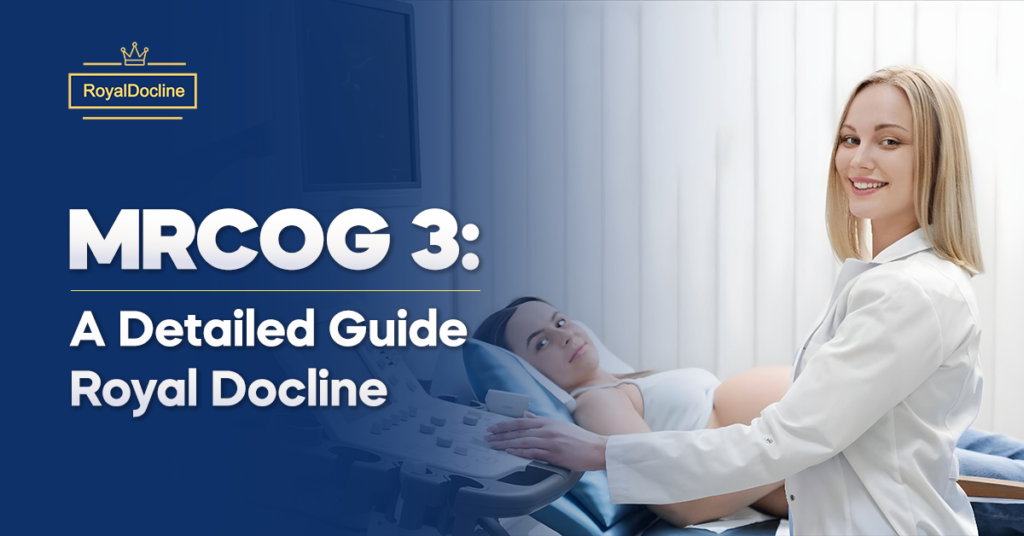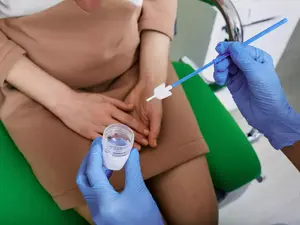
MRCOG Part 3 is the final stage of the Membership of the Royal College of Obstetricians and Gynaecologists (MRCOG) examination. It assesses your ability to apply clinical knowledge in real-life scenarios. Unlike the written exams in Parts 1 and 2, MRCOG Part 3 is an Objective Structured Clinical Examination (OSCE).
How Long Is MRCOG Part 3?
MRCOG Part 3 is the final stage of the MRCOG examination. In this exam, you’ll be tested on various skills essential for a specialist in obstetrics and gynecology. These include communication, patient safety, clinical decision-making, and ethics. It’s an OSCE (Objective Structured Clinical Examination) that usually lasts around 2.5 hours.
The exam consists of 14 stations, each presenting a different clinical scenario. You’ll spend about 12 minutes at each station, with 2 minutes reading the scenario and 10 minutes interacting with the examiner or simulated patient.
How To Pass MRCOG Part 3?
Passing MRCOG Part 3 requires thorough preparation. Start by understanding the exam structure. Focus on communication skills, clinical knowledge, and ethical decision-making. Practice with mock exams and OSCE scenarios. It’s also helpful to join study groups or attend courses designed for MRCOG Part 3. During the exam, stay calm and focused. Listen carefully to the examiners’ instructions. Always think about patient safety and effective communication.
Is MRCOG A Degree Or Diploma?
MRCOG, or Member of the Royal College of Obstetricians and Gynaecologists, is a professional qualification. It’s not a degree but rather a highly respected diploma. Doctors who pass all parts of the MRCOG exam are recognized as specialists in obstetrics and gynecology. It’s a credential often required for career advancement in this field, especially in the UK and many other countries.
What Is The MRCOG Part 3 Marking?
MRCOG Part 3 is marked based on your performance in the OSCE stations. Examiners assess you on several key areas, including communication skills, application of clinical knowledge, and professionalism. Each station has a specific set of criteria, and you’re scored accordingly. Marks are given for how well you address the scenario, interact with the patient, and make clinical decisions. The marking is designed to be fair and objective, ensuring that only those who demonstrate a high level of competence pass the exam.
Highest Certification In Obstetrics And Gynecology
The MRCOG (Membership of the Royal College of Obstetricians and Gynaecologists) is considered one of the most prestigious certifications in obstetrics and gynecology for several key reasons:
1. Global Recognition
The MRCOG qualification is recognized worldwide as the gold standard in obstetrics and gynecology. It is respected by medical professionals, institutions, and healthcare systems across many countries, opening doors to career opportunities internationally.
2. Comprehensive Assessment
The MRCOG exams are rigorous and thorough, covering a wide range of topics in obstetrics and gynecology. They test both theoretical knowledge and practical skills, ensuring that those who pass have a deep understanding of the field and can apply it in real-world situations.
3. High Standards
The Royal College of Obstetricians and Gynaecologists (RCOG) maintains very high standards for the MRCOG exams. Only those who demonstrate excellence in clinical knowledge, patient care, and ethical decision-making are awarded the qualification. This exclusivity adds to the prestige of the certification.
4. Pathway to Specialization
Earning the MRCOG is often a key step for doctors specializing in obstetrics and gynecology. It is a required or highly recommended qualification in many countries for advancing in this specialty. The MRCOG is a benchmark for assessing a doctor’s readiness to take on higher responsibilities in the field.
5. Association with a Renowned Institution
The RCOG, founded in 1929, is a highly respected institution with a long history of advancing women’s health. Being associated with such a prestigious organization enhances the value of the MRCOG qualification and the reputation of those who hold it.
6. Continuous Professional Development
The MRCOG is not just an exam; it’s part of a commitment to lifelong learning and professional development. The RCOG provides its members with ongoing educational resources, events, and support. It helps them stay at the forefront of medical advances and best practices in obstetrics and gynecology.
7. Network of Experts
Earning the MRCOG connects you to a global network of leading experts in obstetrics and gynecology. This community offers collaboration, mentorship, and knowledge-sharing opportunities, further improving your professional growth and standing in the field.
8. Impact on Patient Care
The MRCOG qualification is a mark of excellence in patient care. It signifies that the holder is knowledgeable and committed to providing the highest standard of care to women and their families. This focus on quality care reinforces the prestige of the certification.
Because of these factors, the MRCOG is regarded as one of the most prestigious and sought-after qualifications in obstetrics and gynecology.
Where To Look For Guidance?
Passing MRCOG Part 3 is a significant milestone. It’s the final step in earning the MRCOG qualification, which is highly respected and recognized globally in obstetrics and gynecology. It is the highest certification if you want to build your career in the field of gynecology and obstetrics.
With 30 years of experience as a Professor and Consultant Obstetrician and Gynecologist, Dr. Yasmeen Haseeb is a leading expert in the field. She holds prestigious qualifications, including MRCOG (UK) and FACOG (USA), and she is a certified Healthcare Professor in Medical Education from the renowned Dundee University, UK. During her MBBS, she earned the President’s Gold Medal for being the top graduate, proving her commitment and excellence in medicine.
Beyond her extensive clinical and teaching background, Dr. Yasmeen Haseeb plays a key role in various prestigious positions. She serves as an MRCPI OSCE Examiner in Ireland and as a Faculty Examiner for MRCOG OSCE courses at the RCOG in the UK. Additionally, she is an elected Committee Member of the RCOG UK for the Gulf region. She has substantial experience as a Postgraduate Resident Training Programme Director for MRCOG, MRCPI, Saudi Board, and Arab Board candidates. With her expertise, Dr. Yasmeen Haseeb is the ideal guide for anyone preparing for MRCOG Part 3, as well as Parts 1 and 2. There is really no one better than her who can give you expert guidance for MRCOG exams.
Contact Royaldocline today to secure your appointment, or even ask questions if you have any!

